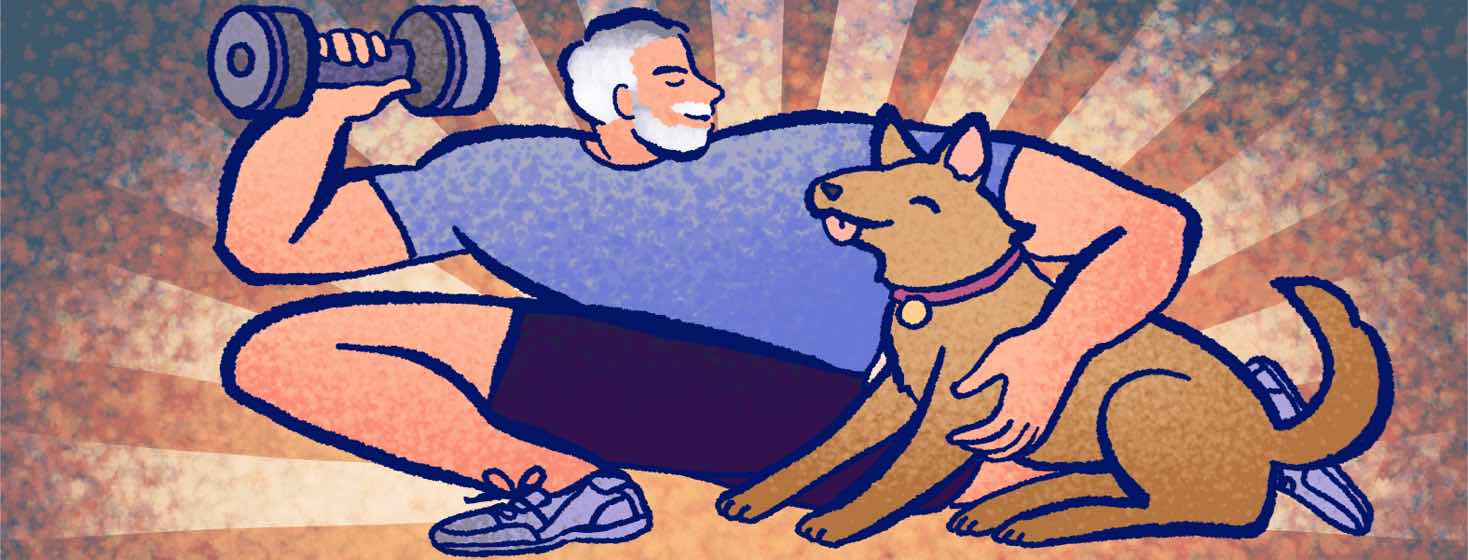Community Spotlight: Tony B
Tony, a personal trainer and retired competitive bodybuilder, shares how fitness helped him cope with prostate cancer. He also shares how other sources of support, such as his husband and his faith, have helped.
Getting diagnosed
I was first diagnosed with prostate cancer in 2019 when I went for my PSA test. My father had prostate cancer, so I was concerned about my own risk. When it came back as PSA of 4.5, I was advised to go for a DRE, which raised further concern. Then was the MRI followed by a biopsy, all which confirmed I had prostate cancer.
I was a little shocked this could happen to me weeks before my 50th birthday, but I tried to stay optimistic and decided on surgery. My surgery was scheduled for April 2020 but had to be rescheduled due to Covid until June. In April 2020, I was advised to shield by my workplace. I am a prison officer, and my job includes contact with many people, so my government employer thought it was best and they have been very supportive throughout.
Deciding on treatment
I decided on surgery because I thought it would be the best way of removing the cancer, and I knew I was fit enough to recover from it better than if I was older. This was the case, and my recovery went well; I was back lifting weights about 3 months after surgery.
However, shortly after, I was diagnosed with a recurrence, which I took worse than my initial diagnosis. I really thought I had dealt with this cancer – I was wrong. I was advised to have radiotherapy with two years hormone treatment. However, I declined the hormone treatment because as a physical instructor, a lifetime bodybuilder, and a prison officer, I do not want to lose my strength and physique, which is very important in these roles.
Also, the loss of libido together with all the other potential side effects I read about put me off doing hormone treatment. I was told that hormone treatment would significantly increase the chances of success in the radiotherapy, but I was willing to take that chance and hope and pray that the radiotherapy as monotherapy will clear my cancer.
How fitness helped me cope
During my time "shielding," I decided to pursue my dream of studying to be a personal trainer, which I did via online distance learning at home. I am a former Welsh and British Bodybuilding Champion, and fitness is my passion. Even in the lead-up to my surgery, including the day before it and despite the gyms being closed, I exercised at home and prepared fitness content, sharing my journey on social media during my cancer journey.
I have got 7,500 followers on Instagram and have started my own Online Fitness Coaching & Strength Coaching business. I think this has not only helped keep with my mindset but also my healing, as my core muscles were already very strong going into surgery.
Also, during my second line treatment of radiotherapy, I worked out by lifting weights every day throughout the 7 weeks of treatment, and I really believe that helped my recovery by increasing my red blood cells.
How my approach to personal training changed
My approach to training has changed radically since my diagnosis. I cannot take any supplements now which raise my testosterone, so my recovery and strength isn't how it used to be. My enthusiasm is maintained by helping other people reach their fitness goals.
Knowing I have to look the part to attract clients, I know I have to train hard, but these days I train smart rather than heavy.
The effects of prostate cancer on gay and bisexual men
As a gay man, the effects of prostate cancer are just as difficult as they are for a straight man. We need intimacy, too, and the loss of sexual function can affect one's confidence.
I am lucky to have a supportive husband. I don't know how I would cope trying to have intimate relationships otherwise.
My advice to someone newly diagnosed
For someone who is newly diagnosed, I would advise to be kind to yourself, practice gratitude daily, and count your blessings. Search for the hidden opportunity in your misfortune; maybe it's time to learn a new skill.
Looking after and nurturing others can help, too. My husband and I adopted a puppy, who brings us so much joy and has been there for me throughout. I highly recommend pet therapy.
Faith can be a source of great strength if you are a believer, but if not, science-based mindfulness can have a similar effect. I practice Buddhism and go to Buddhist meetings online and chant daily, which keeps me centered and positive.
Finally, exercise. It doesn't have to be weight lifting like me; it can be walking, stretching, even just moving more. If anyone would like to talk about any of these activities and needs help getting started, feel free to drop me a line on my Instagram @train_with_tone. I'm sending love and positivity for everyone reading this article affected by prostate cancer.

Join the conversation